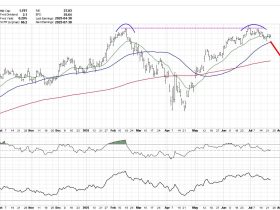The UK risks losing an additional 600,000 workers over the next decade due to long-term health conditions, according to new research by the Royal Society for Public Health (RSPH).
The report warns that unless the government and employers implement sweeping reforms to workplace health support, Britain’s productivity and economic recovery will face mounting strain.
The analysis forecasts that 3.3 million adults will be economically inactive due to illness by 2035, a 26 per cent rise from current levels — equivalent to the population of Bristol leaving the workforce. The projected losses are expected to cost the economy £36 billion a year, underlining the scale of the country’s health-driven labour market crisis.
William Roberts, chief executive of the RSPH, said the findings underline the need for a “fundamental shift” in how businesses view their responsibility for employee wellbeing.
“The UK’s productivity crisis is one of the biggest challenges facing our economy — and long-term health conditions in the workforce are a major factor,” he said. “We need a new national standard that sets a baseline level of health support for all UK employees.”
The RSPH is calling for a national health and work standard, which would establish minimum requirements for all employers — including access to preventative services such as flu vaccinations, cardiovascular checks, and mental health support.
Previous research by the organisation found that almost half of UK workers lack access to basic health interventions through their employer.
The warnings come ahead of the Keep Britain Working review, an independent assessment led by Sir Charlie Mayfield, due later this month. The review will make recommendations on how employers and the government can reduce health-related inactivity and foster healthier, more inclusive workplaces.
Sam Atwell, policy and research manager at the Health Foundation, said the review represented a “vital opportunity” to reset the country’s approach to workplace wellbeing.
“The only sustainable way to meet this challenge is to keep people healthy and in work for longer,” he said. “Government and employers must take early action through clearer standards and better access to specialist support that helps employees remain healthy and productive.”
Experts warn that without decisive action, the UK’s economic inactivity problem — already at its highest level in decades — will worsen. Jamie O’Halloran, senior research fellow at the Health Foundation, said that improving workforce health could yield major productivity gains for both businesses and the economy.
“If we are to reduce economic inactivity, harnessing the role of employers will be essential,” he said. “This means setting stronger minimum standards for workplace health and empowering businesses to go further — particularly by investing in line managers, who play a critical role in supporting staff wellbeing.”
O’Halloran added that proactive health investment would reduce staff turnover, cut absenteeism and presenteeism, and ultimately strengthen business performance.
A government spokesperson said ministers were committed to improving national wellbeing and employment outcomes.
“Good work is good for health and good for the economy,” they said. “Through our 10-year health plan, we’re shifting from sickness to prevention — helping frontline staff like GPs and physiotherapists provide the personalised support people need to stay in or return to work.
“The upcoming Keep Britain Working review will explore how employers can play their part in building healthier, more inclusive workplaces. Everyone we can help remain in work contributes not only to their own wellbeing but to a stronger, more prosperous nation.”
Read more:
Britain risks losing 600,000 more workers to long-term illness without urgent action, health experts warn












